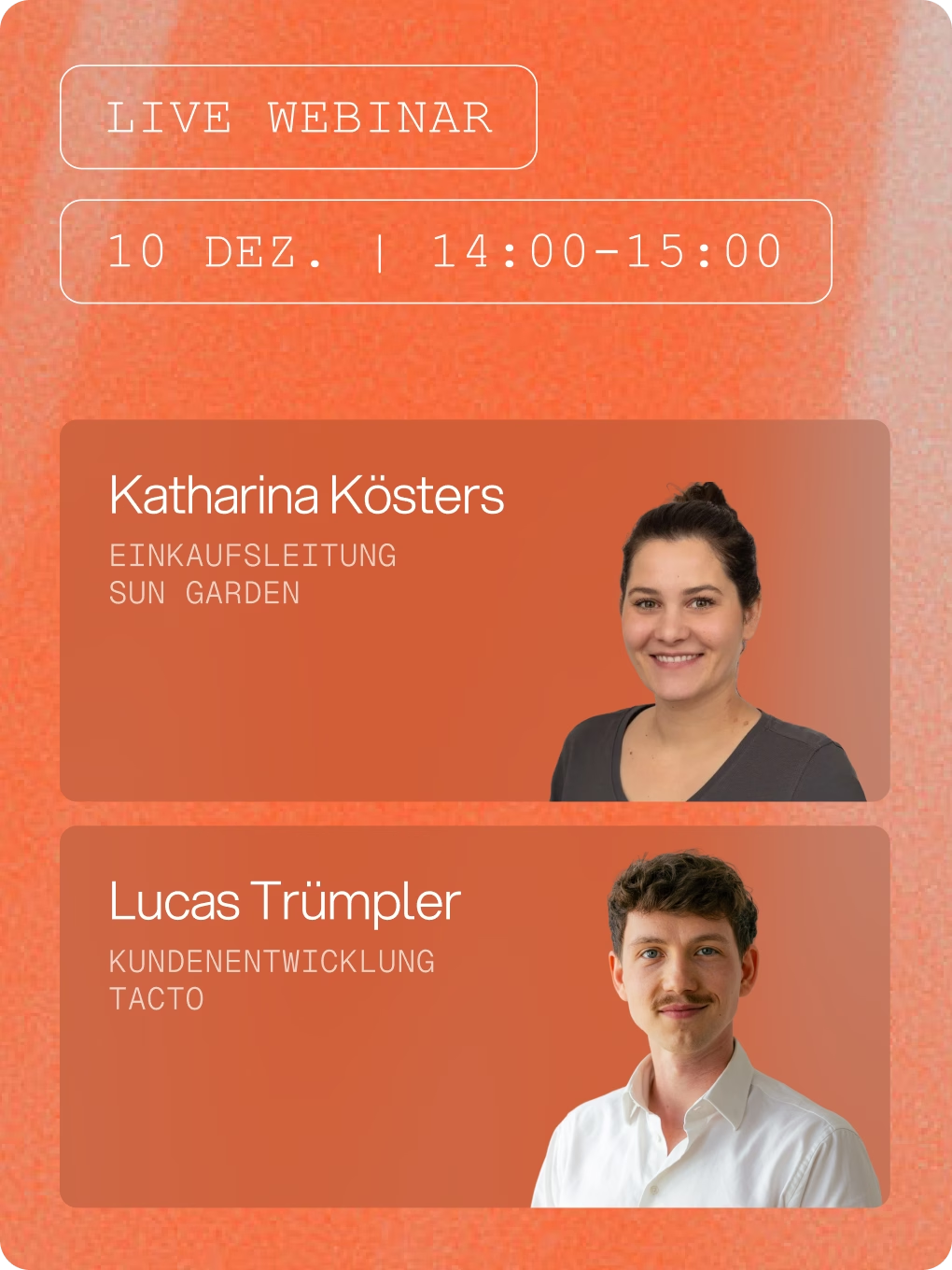Procurement Glossary
Technology evaluation in Procurement: Systematic analysis for strategic procurement decisions
November 19, 2025
Technology assessment in Procurement is a systematic process for analyzing and evaluating technological solutions and innovations in the procurement context. It enables purchasing organizations to make informed decisions about technology investments and secure competitive advantages. Find out below what technology assessment in Procurement involves, which methods are used and how you can use them strategically.
Key Facts
- Systematic evaluation of technological innovations to support strategic procurement decisions
- Takes technical, economic and strategic criteria into account when selecting technology
- Reduces investment risks through structured analysis of technology alternatives
- Enables early identification of future-oriented technologies in the supplier portfolio
- Supports the integration of new technologies into existing procurement processes
Contents
Definition: Technology evaluation in Procurement
Technology assessment in Procurement refers to the systematic analysis and evaluation of technologies, innovations and technical solutions in the context of strategic procurement.
Key aspects of technology assessment
The assessment covers several key dimensions that are relevant for successful procurement decisions:
- Technical feasibility and maturity of the technology
- Economic evaluation of cost-benefit ratios
- Strategic importance for the value chain
- Risk assessment and implementation effort
Technology evaluation vs. classic supplier evaluation
While the supplier evaluation focuses primarily on performance and reliability, the technology evaluation concentrates on innovation potential and technological sustainability. It supplements supplier management with a technological perspective.
Importance of technology assessment in Procurement
In an increasingly digitalized economy, the systematic evaluation of technologies is becoming a decisive competitive factor. It enables companies to identify technological trends at an early stage and make strategic procurement decisions.
Methods and procedures for technology evaluations in Procurement
The systematic evaluation of technologies requires structured methods and clear evaluation criteria in order to enable objective and comprehensible decisions.
Technology Readiness Level (TRL) Assessment
The TRL model evaluates the maturity level of technologies on a scale of 1 to 9. This method helps to assess development risks and implementation times:
- TRL 1-3: Basic research and concept development
- TRL 4-6: Technology development and validation
- TRL 7-9: System demonstration and market launch
Multi-criteria decision analysis
This method enables the systematic evaluation of different technology alternatives based on weighted criteria. Technical, economic and strategic factors are recorded in a structured evaluation grid. Supplier selection benefits from this objective approach.
Technology portfolio analysis
The portfolio analysis categorizes technologies according to market attractiveness and technological position. It supports strategic planning and resource allocation as part of the supplier strategy.

Tacto Intelligence
Combines deep procurement knowledge with the most powerful AI agents for strong Procurement.
Important KPIs for technology evaluations in Procurement
Measurable key figures enable the objective evaluation of technologies and the monitoring of the success of evaluation processes.
Technology Assessment Accuracy Rate
This indicator measures the accuracy of technology assessments by comparing forecast and actual technology developments. A high accuracy rate of over 80% shows the quality of the evaluation process:
- Comparison of forecasts with actual market developments
- Analysis of deviations and potential for improvement
- Continuous calibration of the valuation models
Time-to-market reduction
Measures the reduction in time to market through effective technology assessment. Target values are typically 15-25% reduction compared to traditional approaches. This metric correlates directly with the effectiveness of supplier development.
Innovation Pipeline Value
Evaluates the monetary value of the identified technology innovations in the procurement portfolio. This key figure supports strategic planning and budget allocation for technology investments within the supplier portfolio.
Risk factors and controls for technology assessments in Procurement
The evaluation of new technologies entails various risks that must be minimized by means of suitable control mechanisms.
Technological obsolescence
The risk of obsolete technologies requires continuous market observation and regular reassessment. Short innovation cycles can lead to premature investment write-offs:
- Establishment of technology roadmaps with regular updates
- Diversification of the technology portfolio
- Flexible contract design with upgrade options
Valuation bias and subjectivity
Incomplete information or personal preferences can lead to incorrect assessments. The risk analysis must take systematic distortions into account and minimize them through structured assessment processes.
Implementation risks
Technical complexity and integration problems can jeopardize projects. Risk management should include pilot projects and step-by-step implementation strategies to reduce the risk of failure.
Practical example
A car manufacturer implements a systematic technology evaluation system for electric mobility components. The company develops a multi-criteria evaluation model with weighted factors: technical maturity (30%), cost efficiency (25%), sustainability aspects (20%), supplier stability (15%) and innovation potential (10%). Through the structured evaluation, the company identifies three promising battery technologies and reduces the development risk by 40%.
- Establishment of standardized evaluation criteria for all technology categories
- Integration of the evaluation results into the strategic supplier selection
- Continuous monitoring and adjustment of the valuation models
Current developments and effects
Technology assessment in Procurement is subject to continuous change due to new technologies and changing market requirements.
Artificial intelligence in technology assessment
AI-based systems are revolutionizing technology assessment through automated data analysis and pattern recognition. Machine learning algorithms can process large amounts of data from patent databases, research publications and market analyses:
- Automated trend identification and technology scouting
- Predictive analytics for technology developments
- Intelligent evaluation models with self-learning algorithms
Digital platforms and collaboration tools
Cloud-based evaluation platforms enable collaborative technology evaluation between different stakeholders. These tools integrate seamlessly into existing supplier portals and support transparent decision-making processes.
Sustainability assessment as the new standard
Environmental and sustainability criteria are becoming increasingly important in technology assessment. ESG factors (environmental, social, governance) are systematically integrated into evaluation models and have a significant influence on strategic technology decisions.
Conclusion
Technology evaluation in Procurement is becoming a strategic success factor for future-oriented companies. Systematic evaluation methods and AI-supported analysis processes enable well-founded decisions to be made when investing in technology. The integration of sustainability criteria and continuous adaptation to market changes are crucial for long-term success. Companies that use technology assessment strategically secure competitive advantages and reduce investment risks in the long term.
FAQ
What distinguishes technology assessment from traditional supplier assessment?
Technology assessment focuses on innovation potential, technical maturity and future viability of technologies, while classic supplier assessment primarily evaluates operational performance, quality and reliability. Both approaches complement each other in holistic procurement management.
Which criteria are particularly important when evaluating technology?
Key evaluation criteria include technical maturity level (TRL), market potential, cost efficiency, implementation effort, sustainability aspects and strategic importance for the company. The weighting varies depending on the industry and corporate strategy.
How often should technology assessments be updated?
In fast-moving technology sectors, quarterly reviews are recommended, while semi-annual or annual updates are sufficient in more stable industries. Disruptive market changes, however, require immediate reassessments regardless of the regular cycle.
What role does AI play in modern technology assessment?
Artificial intelligence automates data collection and analysis, identifies technology trends and supports forecasting models. AI systems can process large amounts of data from various sources and generate objective evaluation recommendations, thereby reducing human bias.



.avif)

.png)
.png)


.png)




